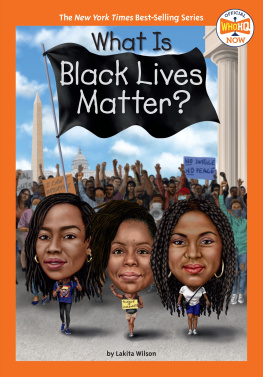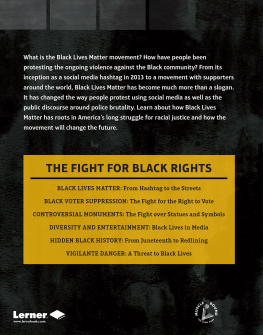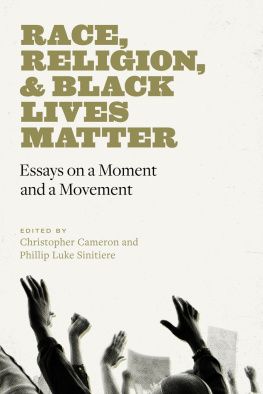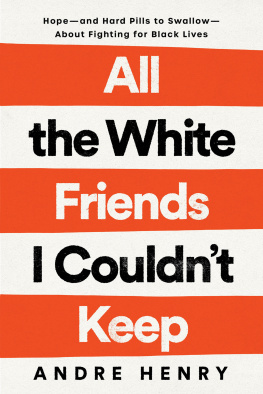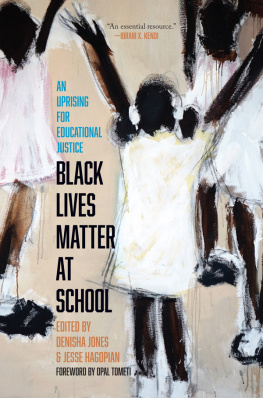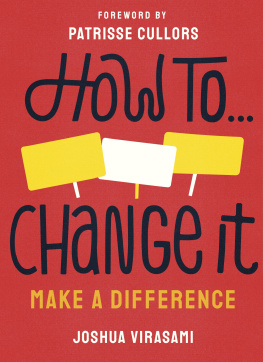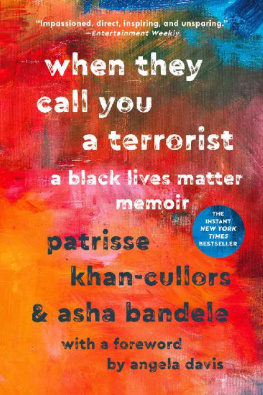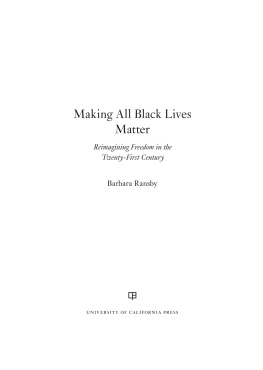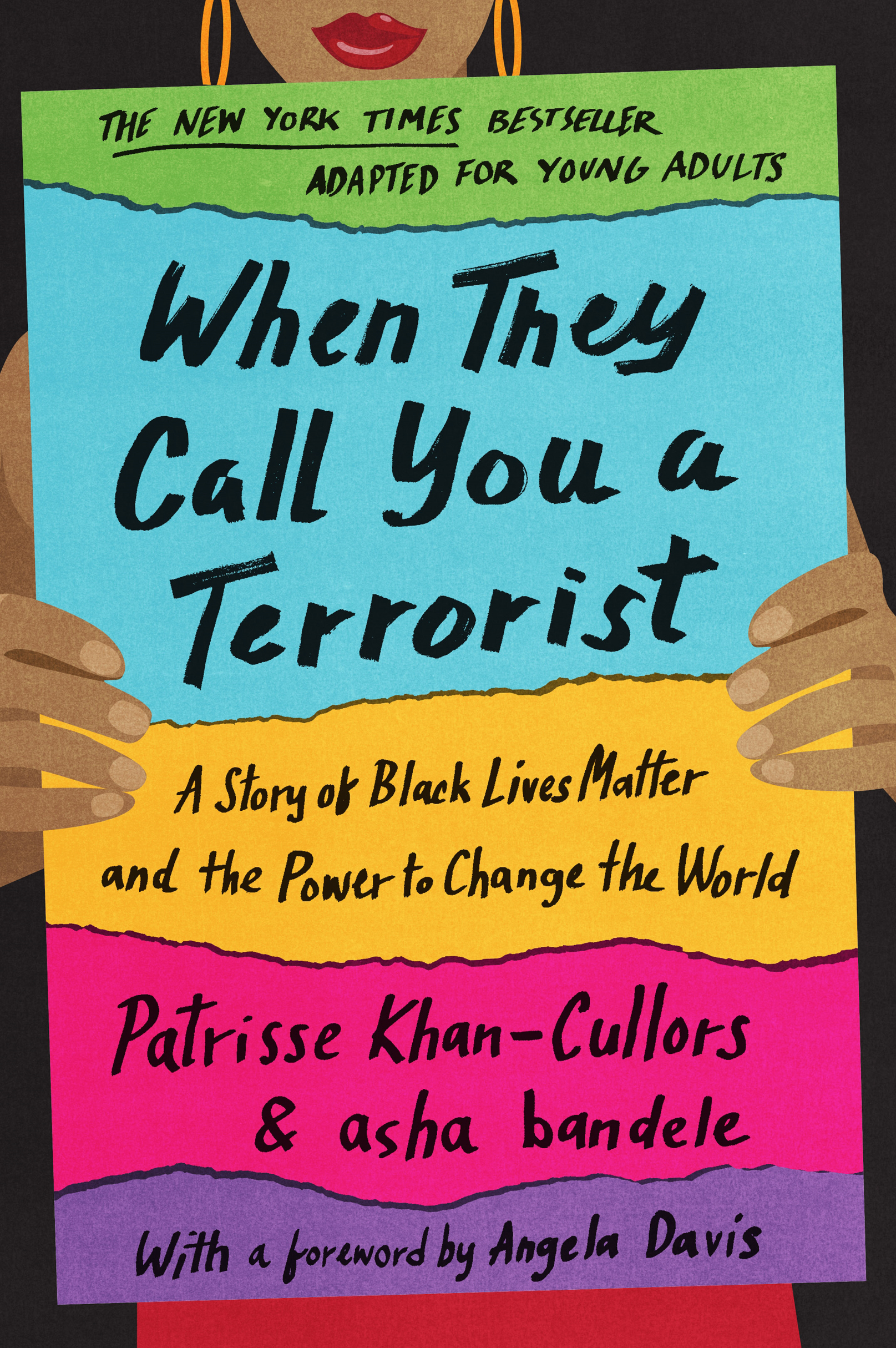The author and publisher have provided this e-book to you for your personal use only. You may not make this e-book publicly available in any way. Copyright infringement is against the law. If you believe the copy of this e-book you are reading infringes on the authors copyright, please notify the publisher at: us.macmillanusa.com/piracy.
BY ANGELA DAVIS
When I first met Patrisse Khan-Cullors, I could not have predicted that within a short period of time she, along with Alicia Garza and Opal Tometi, would become the face of a movement that, under the rubric of Black Lives Matter, would rapidly reverberate throughout the world. But I could clearly see that Patrisse and her comrades were pushing Black and left, including feminist and queer, movements to a new and more exciting level, as they seriously wrestled with contradictions that had plagued these movements for many generations.
In this memoir, Patrisse generously shares the intimacies of her life and loves, and her unyielding devotion to the cause of freedom. The stories she tells here with asha bandele help us to understand why her approach to organizing and movement building has captured the imaginations of so many. Her story emphasizes the productive intersection of personal experiences and political resistance. The pivotal story of her brothers repeated encounters with violence-prone police officers, for example, permits us to better understand how state violence thrives at the intersection of race and disability. That MontePatrisses brotheris shot with rubber bullets and charged with terrorism as a routine police response to a manic episode reveals how readily the charge of terrorism is deployed within white supremacist institutions. We learn not only about the quotidian nature of state violence but also about how art and activism can transform such tragic confrontations into catalysts for greater collective consciousness and more effective resistance.
When They Call You a Terrorist thus illuminates a life deeply informed by race, class, gender, sexuality, disability and religion, at the same time as it highlights the art, poetry and indeed also the struggles such a life can produce. But, of course, it is not only Patrisses brother who is called a terrorist. It is Patrisse herself, and her co-workers and comradesincluding Alicia, Opal and the other organizers and activists affiliated with the Black Lives Matter network and movementwhose commitments and achievements are maligned with the label of terrorism. No white supremacist purveyor of violence has ever, to my knowledge, been labeled a terrorist by the state. Neither the slayers of Emmett Till nor the Ku Klux Klan bombers who extinguished the lives of Carole Robertson, Cynthia Wesley, Denise McNair and Addie Mae Collins before they could emerge from girlhood were ever charged with terrorism or officially referred to as terrorists. But in the 1970s, President Richard Nixon instinctively hurled that label at me, and in 2013 Assata Shakur was designated by the FBI as one of the worlds ten most dangerous terrorists.
There are many lessons to be gleaned from Patrisses memoir, not the least of which have to do with political rhetoric. The very title, When They Call You a Terrorist, asks the reader to engage critically with the rhetoric of terrorismnot only, for example, the way in which it has occasioned and justified a global surge in Islamaphobia, and how it has impeded thoughtful reflection on the continued occupation of Palestine, but also how this rhetoric attempts to discredit anti-racist movements in the United States. At the same time, racist, misogynist and transphobic eruptions of violence continue to be normalized. The seemingly simple phrase Black Lives Matter has disrupted undisputed assumptions about the logic of equality, justice and human freedom in the United States and all over the world. It has encouraged us to question the capacity of logicWestern logicto undo the forces of history, especially the history of colonialism and slavery. This logic expresses itself through our philosophical certainties and ideological presuppositions and in our legal system, which, for example, allows for the incarceration of disproportionate numbers of Black people, immigrants from the Global South and people of recent immigrant ancestry, justifying the structural racism of such practices with references to due process and other ostensible legal guarantees of equality.
Patrisse Khan-Cullors and her comrades within the Movement for Black Lives, which embraces many more organizationsincluding the Black Youth Project 100 and the Dream Defenders in Floridaare helping to produce forward-looking movement approaches that represent the best possibilities for the future of our planet. They call for an inclusiveness that does not sacrifice particularity. They recognize that universal freedom is an ideal best represented not by those who are already at the pinnacle of racial, gender and class hierarchies but rather by those whose lives are most defined by conditions of unfreedom and by ongoing struggles to extricate themselves from those conditions. This recognition and the vast power of love are at the core of Patrisses powerful memoir.
For as long as I have been cognizant of myself and the world around me, for as long as Ive had memory, I have felt like an outsider, an other. This deep-rooted sense of being different was powerful and pervasive, bleeding into everything from the inside out. My sexuality wasnt the same, even if I didnt yet have a name for or comprehension of it. I was pulled from the schools my friends and neighbors and peers attended and sent elsewhere with people who didnt look, think or experience as I did. Without fully understanding what those around me were feeling, I knew what I was journeying through didnt line up. And then there was that thing I couldnt hide behind or keep to myself: I didnt look like my siblings, all three of whom shared a family resemblance. Those things that say you belong, that youre one of the fingers on the hand. I stood out and knew I couldnt have been the only one who noticed.
When Id ask my mother about it, which I did with increasing frequency as I came up, shed either change the subject or out-and-out lie. One explanationYou look like me when I was your agejust didnt add up. It wasnt possible; she wouldnt have changed that drastically. She wasnt being truthful, but I couldnt confirm it. I knew it; I did! What had started as an inkling soon exploded into dead-on certainty. And yet, I had no tangible proof and didnt seem likely to get any. Which was a difficult and extremely unsettling place to be.


